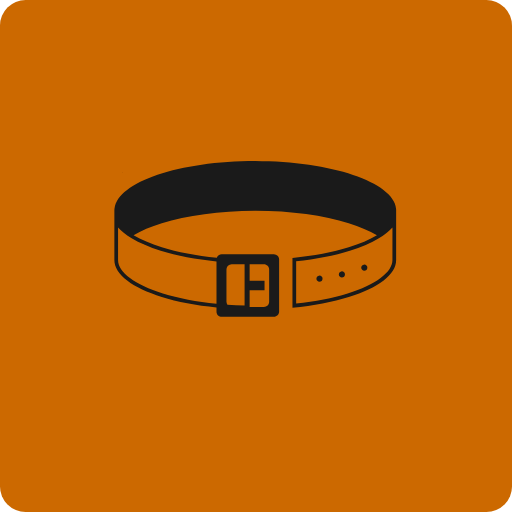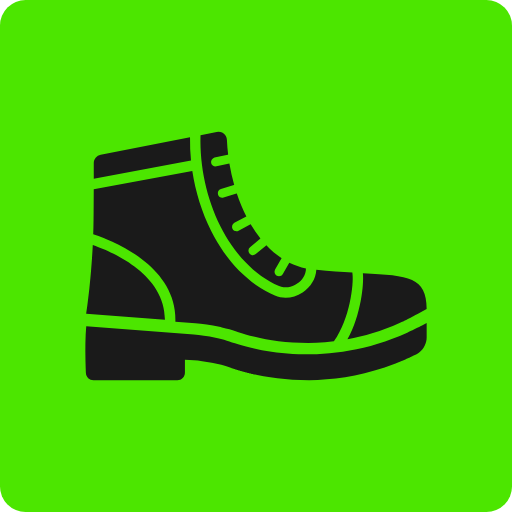


After the excitement of landing a job wears off, you might be struck by the following thought: "What the heck do I need to buy before I show up for duty? Do I need to buy line gear? A red bag? My own personal fire shelter? A shovel? How much is this gonna cost me?"
Now before you give yourself an anxiety attack, remember that for most government crews (federal, state, county or tribal) most gear will be provided. Contract crews operate differently and often times require their team members to purchase more of their gear. But for most wildland firefighters, there are really only three things you need to buy before the season starts.
Belt
You have two options here. Wear a leather belt with a belt buckle, or a nylon belt. We've heard the nylon belts called smokejumper belts, jumper belts, or tactical belts. Call it whatever you want. They're sharp to look at, don't show wear and tear like a leather belt, and keep your pants from falling down. They're also pretty reasonably priced ($10 - $25). But don't wear a dress belt. You'll look like an idiot.
Sunglasses
Sunglasses are a pretty personal choice so it's a tough task to recommend a specific brand or style. But we would suggest looking for lens that are polarized (helps with seeing through smoke) and comes with interchangeable lens. The benefit of having interchangeable lenses is that you can wear the same frames at night, in low-light conditions, or during the middle of the day. If you're looking for a recommendation on what color lenses, we'd suggest a standard dark glass for day-time operations, a clear or yellow lens for night-time ops, and a rose or yellow-lens for dusk or smoke-filled shifts (e.g. Rx burning). Also, since these shades are more than just a fashion accessory, look for impact-resistant lens when you're shopping.
Most of the crews I worked with favored Smith sunglasses. They're sharp AND offer pro-deals for wildland firefighters and other first responders. So shop around!
Boots
We have a much-more in-depth guide to Boot Buying as well, but if you want to save time and skip to our recommendation, we recommend White's Boots. Specifically the White's Smokejumper. It's been the go-to boot for generations of firefighters.
Watch
Our personal opinion is simpler is better when it comes to time pieces on the line. You just need something that can handle the abuse of long days of manual labor. Watches with short battery lives that need to be recharged constantly - probably not a great fit for this line of work. The Timex IRONMAN series for instance is a classic. It's got all the features you need to help train in the off-season, has an alarm for early morning wake-ups, and is tougher than MRE chicken, and you can usually pick them up for $50 or less if you shop around. If you're looking to upgrade, the Garmin Fenix 7 looks pretty sharp but comes at a pretty steep cost, but Garmin has a pretty diverse product line so shop around. If Garmin's prices are a bit high for your liking, you might want to take a look at Suunto. They offer some rugged and dependable watches, and you can often find their older model watches discounted.
Multitool / Knife
Personally, we'd recommend a multi-tool over just a knife because of the versatility. But at minimum, you're gonna need a blade for cutting paracord, opening up MREs, defending yourself from angry wild boar (kidding). Or let's say you're staging by a river and someone brought their fishing pole. You're gonna need a knife to filet those rainbow trout.
We recommend either a Leatherman or Gerber multi-tool. Honestly, you can't go wrong with either of these brands. Gerber tends to be a bit easier on the wallet. Think about weight and size. The Leatherman Signal sits right in the sweet spot. Just the right amount of tools. Not too bulky, and it is designed for camping and other outdoor adventures. It offers 19 tools (a can opener, a saw blade, a mini-hammer for tent stakes, and a screwdriver and pliers - everything you need on the line or around fire camp). Check it out in Coyote Tan too.- pretty sharp.
3 Things You Don't Need to Buy ... But You Might Want to Upgrade



Headlamp
Most federal and state agencies will provide you with a standard-issue headlamp that's just fine. But if you're a sawyer, and plan on doing a lot of timber falling at night, it might be worth investing in a stronger headlamp. Especially when you're trying to scope out a monstrous sugar pine tree in northern California for widow makers, you'll feel the money was well-spent. One note about upgrading headlamps. Be sure and check with your crew to make sure its alright if you're wearing a different piece of kit than the others. Also, don't get a headlamp with a rechargeable battery. While it might be the right thing to do by the environment, if you're spiked out for a few days, you're going to struggle to recharge it. There are literally pallets stacked high with AA batteries lying around fire camps. And if you're spiked out, they'll throw a box of batteries into the sling load along with water and food. Don't be foolish. Get a headlamp that runs on AA batteries.
Earplugs
This might be a smart upgrade if you plan on spending a lot of time around chainsaws, or around aviation resources like helicopters. You can't reverse hearing loss. And let's be honest - how good can those disposable ear plugs really be? The benefit of custom earplugs is that the fit is better. Which is important. Because if the earplug isn't properly seated in your ear - it's not doing its job right. Decibulz makes a nice product that's reasonably priced (~$25). You can also go a step further and search your local area for an audiologist who can make them specifically for you.
Sleeping Bag
Again, for the most part, your standard issue green sleeping bags that are ubiquitous on the fireline are going to be just fine. But if you plan on spending more time where it's cold (maybe the Northern Rockies, etc.) you might want to invest in a warmer bag. In general, if you have a 30 degree bag, or something in that range, you'll be fine for most of the season in most places in the US. Also, depending on how sensitive you are to sleeping on the ground, you might want to invest in a comfier sleeping pad like a nice Therm-a-Rest.